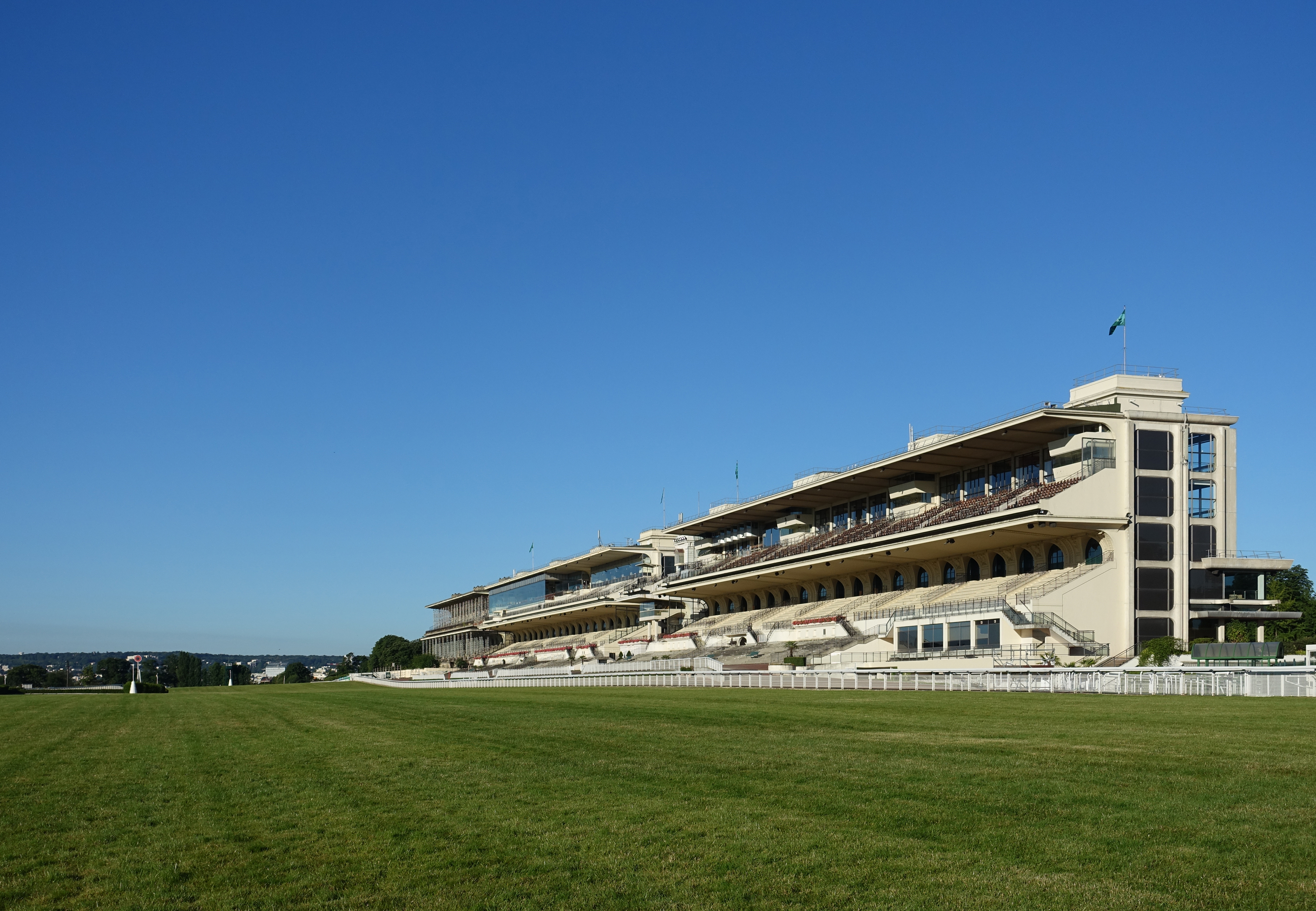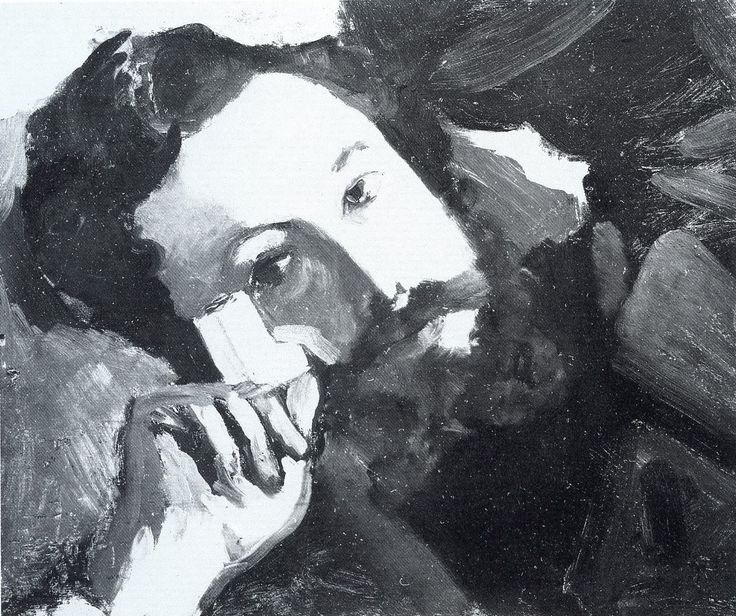|
Grande Course De Haies D'Auteuil
The Grande Course de Haies d'Auteuil, sometimes referred to as the French Champion Hurdle, is a Group 1 hurdle race in France which is open to horses aged five years or older. It is run at Auteuil over a distance of 5,100 metres (about 3 miles and 1½ furlongs), and it is scheduled to take place each year in June. History The race was first run on May 25, 1874, the same day as the inaugural running of the Grand National de France (now the Grand Steeple-Chase de Paris). It was originally open to horses aged four or older, and it was initially contested over 4,000 metres. This was increased to 4,800 metres in its second year, and to 5,000 metres in 1880. The race was given a new date in 1882 – it was moved to the Wednesday after the Grand Steeple-Chase de Paris, which continued to be run on the last Sunday in May. The following year saw the launch of a new steeplechase at Auteuil, the Prix des Drags, and this was scheduled for the Friday of the same w ... [...More Info...] [...Related Items...] OR: [Wikipedia] [Google] [Baidu] |
Auteuil Hippodrome
The Auteuil Hippodrome is a horse racing venue on Route des Lacs in the Bois de Boulogne, Paris, France. The 33-hectare (82-acre) race course opened November 1, 1873. It is designed exclusively for steeplechase racing. Modernized a number of times, in 1971 access was improved when two pedestrian tunnels were built under the tracks that lead to the Porte d'Auteuil and the Porte de Passy. It hosted the equestrian events of the 1924 Summer Olympics. It was operating during the liberation of Paris in 1944. video of a race, timestamp 34:50 Operated by , important annual races held at the Auteuil Hippodrome include the |
Cheltenham Gold Cup
The Cheltenham Gold Cup is a Grade 1 National Hunt horse race run on the New Course at Cheltenham Racecourse in England, over a distance of about 3 miles 2½ furlongs (3 miles 2 furlongs and 70 yards, or 5,294 m), and during its running there are 22 fences to be jumped. The race takes place each year during the Cheltenham Festival in March. The steeplechase, which is open to horses aged five years and over, is the most prestigious of all National Hunt events and it is sometimes referred to as the ''Blue Riband'' of jump-racing. Its roll of honour features the names of such chasers as Arkle, Best Mate, Golden Miller, Kauto Star, Denman and Mill House. The Gold Cup is the most valuable non-handicap chase in Britain, and in 2021 it offered a total prize fund of £468,750. History Early years The first horse race known as the Cheltenham Gold Cup took place in July 1819. It was a flat race, and it was c ... [...More Info...] [...Related Items...] OR: [Wikipedia] [Google] [Baidu] |
François Doumen
François Doumen (born 11 June 1940) is a retired French racehorse trainer. From 1956 to 1970 he was an amateur jockey, and he then worked as an assistant trainer to his father Jean. As a young man he had also been a competitive slalom skier. He obtained his own training licence in 1977 and retired in August 2017 after suffering ill health. Doumen was initially based at Maisons-Laffitte, and he subsequently moved to Lamorlaye and later Chantilly and Boucé, Orne. Doumen was successful in both flat and jump racing, and his most notable horses included The Fellow, Jim and Tonic and Baracouda. His son, Thierry, is also a trainer and a former jockey. Major wins France * Grand Steeple-Chase de Paris - (5) - ''The Fellow (1991), Ucello II (1993, 1994), Ubu III (1995), First Gold (1998)'' * Grande Course de Haies d'Auteuil - (3) - ''Ubu III (1992, 1993), Laveron (2002)'' * Prix du Cadran - (1) - ''Kasbah Bliss (2011)'' * Prix Ferdinand Dufaure - (1) - ''Ucello II (1990)'' * Prix La ... [...More Info...] [...Related Items...] OR: [Wikipedia] [Google] [Baidu] |
Ubu III
Ubu may refer to: Arts and entertainment *The title character of ''Ubu Roi'' (''King Ubu''), an 1896 French play by Alfred Jarry and subsequent plays *Ubu Repertory Theater, New York City, dedicated to presenting French plays translated into English *Ubu Awards for Italian theater – see Italian entertainment awards *Ubu Films, a Sydney-based Australian underground filmmakers' cooperative that existed from 1965 to ca. 1972 *Ubu Productions, Inc., a production company founded by television producer Gary David Goldberg * ''Ubu'' (album), the debut album by Illion, aka Radwimps vocalist Yojiro Noda * Ubu (''Dragon Ball''), a character in ''Dragon Ball'' media *"Ubu", a song by Blurt on their album ''Blurt in Berlin'' *"Ubu", a song by Methyl Ethel on their album ''Everything Is Forgotten'' *Ubu, a member of the League of Assassins and the trusted henchman of supervillain Ra's al Ghul in DC Comics UBU *University of Bradford Union, a student union in the United Kingdom *University o ... [...More Info...] [...Related Items...] OR: [Wikipedia] [Google] [Baidu] |
Paddy Mullins
Paddy Mullins (28 January 1919 – 28 October 2010) was an Irish racehorse trainer in a career which spanned fifty two years. Training career His first winner was Flash Parade, which won the 1953 La Touche at Punchestown. Although he was predominantly a jump trainer, with six Cheltenham Festival successes, four Irish National winners and ten Irish jump trainers' titles, two of his greatest successes were achieved on the Flat. Mullins trained the mare Dawn Run to win Cheltenham's Champion Hurdle in 1984 and Gold Cup in 1986. Ridden in both races by Jonjo O'Neill, she is commemorated with a statue overlooking the Cheltenham paddock. He also won the 2003 Irish Oaks with Vintage Tipple and saddled Hurry Harriet to success in the 1973 Champion Stakes at Newmarket. Family He is the father of trainers Tom Mullins, Willie Mullins and Tony Mullins. Mullins trained at Goresbridge, County Kilkenny, from where son Tom assumed control when he retired from training in February, 2005. Tribut ... [...More Info...] [...Related Items...] OR: [Wikipedia] [Google] [Baidu] |
Tony Mullins (horse Racing)
Tony Mullins (born in Pound, Virginia) is an American country music songwriter. Mullins moved to Nashville, Tennessee, in 1992, where he worked with Byron Gallimore's publishing company. Among his first cuts was Kenny Chesney's "How Forever Feels", which spent six weeks at No. 1 on the Hot Country Songs charts. Other songs co-written by Mullins include "Nobody Gonna Tell Me What to Do" by Van Zant, "Me and My Gang" by Rascal Flatts, " Something's Gotta Give" by LeAnn Rimes, and "Little Bit of Life" by Craig Morgan. Other artists who have recorded his songs include John Michael Montgomery, Tim McGraw, Clay Walker, and Phil Vassar. In 2012, Mullins was one of four songwriters featured in Great American Country Great American Family is an American cable television network. Owned by Great American Media, it broadcasts family-oriented general entertainment programming, including television series and made-for-TV movies. It was originally established in ...'s reality series ''The ... [...More Info...] [...Related Items...] OR: [Wikipedia] [Google] [Baidu] |
Paiute (horse)
Paiute (; also Piute) refers to three non-contiguous groups of indigenous peoples of the Great Basin. Although their languages are related within the Numic group of Uto-Aztecan languages, these three languages do not form a single subgroup. The term "Paiute" does not refer to a single, unique, unified group of Great Basin tribes, but is a historical label comprising: * Northern Paiute people of northeastern California, northwestern Nevada, eastern Oregon, and southern Idaho * Southern Paiute people of northern Arizona, southern Nevada, and southwestern Utah * Mono people The Mono ( ) are a Native American people who traditionally live in the central Sierra Nevada, the Eastern Sierra (generally south of Bridgeport), the Mono Basin, and adjacent areas of the Great Basin. The Eastern mono is often grouped under th ... of east central California, divided into Owens Valley Paiute (Eastern Mono) and Western Mono (Monache) {{Authority control ... [...More Info...] [...Related Items...] OR: [Wikipedia] [Google] [Baidu] |
Daniel Wildenstein
Daniel Leopold Wildenstein (11 September 1917 – 23 October 2001) was a French art dealer, historian and owner-breeder of thoroughbred race horses. He was the third member of the family to preside over Wildenstein & Co., one of the most successful and influential art-dealerships of the 20th century. He was once described as "probably the richest and most powerful art dealer on earth".Andrews, Suzanna"Bitter Spoils" '' Vanity Fair'', March 1998. Retrieved 8 October 2012. Early life and education Wildenstein was born in Verrières-le-Buisson, Essonne, just outside Paris. He was educated at Cours Hattemer and at the University of Paris, graduating in 1938 and going on to study at the École du Louvre.Riding, Alan"Daniel Wildenstein, 84, Head of Art-World Dynasty, Dies" ''The New York Times'', 26 October 2001. Retrieved 6 October 2012. [...More Info...] [...Related Items...] OR: [Wikipedia] [Google] [Baidu] |
William Head (horse Racing)
William Head may refer to: * William O. Head (1859–1931), mayor of Louisville, Kentucky, 1909–1913 * William K. Head (born 1947), head football coach for the Kentucky State University Thorobreds {{hndis, Head, William ... [...More Info...] [...Related Items...] OR: [Wikipedia] [Google] [Baidu] |
Horse Trainer
A horse trainer is a person who tends to horses and teaches them different disciplines. Some of the responsibilities trainers have are caring for the animals' physical needs, as well as teaching them submissive behaviors and/or coaching them for events, which may include contests and other riding purposes. The level of education and the yearly salary they can earn for this profession may differ depending on where the person is employed. History Domestication of the horse, Horse domestication by the Botai culture in Kazakhstan dates to about 3500 BC. Written records of horse training as a pursuit has been documented as early as 1350 BC, by Kikkuli, the Hurrian "master horse trainer" of the Hittite Empire. Another source of early recorded history of horse training as a discipline comes from the Ancient Greece, Greek writer Xenophon, in his treatise On Horsemanship. Writing circa 350 BC, Xenophon addressed Horse training, starting young horses, selecting older animals, and proper Ho ... [...More Info...] [...Related Items...] OR: [Wikipedia] [Google] [Baidu] |


